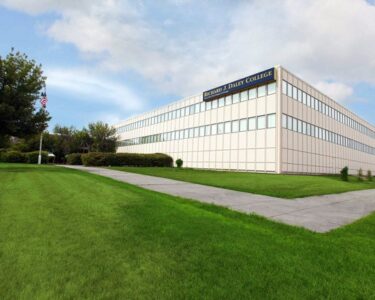Barcelona is a country with a rich historic background that has gone through many ups and downs. In this piece of writing, we will see some highlights of the history of Barcelona.
The union with the kingdom of Aragon favored the expansion of the Barcelona County throughout Catalonia and Barcelona to become the political and economic center of the new Crown of Aragon. Barcelona hosted the celebration of the Courts of the Crown of Aragon repeatedly.
The strong expansion of the Crown of Aragon in the Mediterranean, which became one of the powers of the time, turned Barcelona into one of the most important cities of the Mediterranean.
King James I founded the city of Barcelona in 1249 stipulating that it would be governed with five Consellers and the Consell de Cent.
Prosperity lasted until 1333, when famine and plague wiped out thousands of locals, and four years later the city was ravaged and decimated by the Black Plague. The plague would not abandon the city which continued to plague during the fifteenth and sixteenth centuries.
In the fifteenth century, Barcelona went from bad to worse. The excessive price rises and wages ended in a major economic crisis. Of the trade with the East and the two factions in the divided city was lost. The currency was devalued, foreign trade fled to Valencia and the textile industry was paralyzed. The peasants turned against their masters, and the war with John II of Castile ended up ruining the city.
At the end of the fifteenth century the privilege of balloting granted by Ferdinand II of Aragon to many cities, a privilege that was to divide by lot the municipal power between the local oligarchy, lowered the level of confrontation and a time of light prosperity began to the city.
The Medieval World to Modernism
Link Fernando II of Aragon and Isabella of Castile, the Catholic Monarchs united the two kingdoms and in the new union, the Crown of Aragon and Barcelona began to lose importance in favor of the most powerful Castilla.
Barcelona developed the naval industry and benefited from precious metals trading between Seville and Genoa. In the early seventeenth century, Barcelona began to mint a coin of pure copper and in 1609 founded the Banc of Ciudat.
The seventeenth and eighteenth centuries were painful for Barcelona. Mediterranean possessions were lost, banditry favored by the struggles between the oligarchs ended overland trade and, if that were not enough, Barcelona suffered the wars of secession and succession.
Civil War or the Reapers arose from charges that the Spanish Crown imposed on their territories to maintain an empire and cover the costs of the War of 30 years with France.
The Catalans revolted against new taxes supported by the France of Richelieu and launched a war in which the only winners were the French to keep half of the territory of Catalonia.
The War of Succession faced half of Europe over the succession to the Spanish throne, between supporters of the Bourbons and the Habsburgs. The Crown of Aragon and Barcelona were in favor of the Habsburgs and promised to keep their privileges. But the Austrians abandoned to their fate and Catalonia after the Treaty of Utrecht.
There are endless destinations, however, it is not easy to find a single country meeting exquisite qualities in almost all areas. Spain dazzles you with its combination of history, culture, fun and unique nature. Here I present you with some reasons to make it your next holiday destination.
History
Since the arrival of the Romans, for over two thousand years, the Iberian Peninsula has not been without movement. During the nearly 800 years (711-1492) when Muslims were in Spain, the official religion was Islam, but only until the Reconquista ended this domain in the famous battle in Granada in 1492.
Gastronomy
When you spend more than an hour at the table, you understand how important it is to eat well in the life of the Spaniards. You will see the influence of the Mediterranean diet in the paella or a cool gazpacho. To take energy on a hike through the Letras district in Madrid, it will be good to have a sandwich of ham, and it is almost mandatory that you eat some tapas in many of the bars.
Beautiful Beaches
In addition to the Balearic Islands or the Canary Islands, in Asturias and Galicia, you can see green mountains in front of the Cantabrian Sea. Andalusia has the warmth of the Mediterranean Sea, the Costa Brava in Catalonia owns crystalline waters, and Concha bay in San Sebastian has the beautiful buildings in surrounding.
Flamenco
You cannot miss Flamenco, the force that this dancing has accompanied by a melancholy guitar, is moving. The origins of this genre of music and dance come from southern Spain.
Painting
Among the ten most visited museums in the world is the Prado Museum, showing an intense collection of XVI-XIX centuries. On the other hand, the Spanish art of the twentieth century is well represented in the surrealism of Dalí, Miró or the Cubism of Picasso, which can be seen in Dalí Theatre-Museum, the Thyssen-Bornemisza Museum or the Museum Reina Sofia.
Architecture
In the architecture of Spain, you will see its history such as the colossal Roman aqueduct in Segovia, the decorative detail of Andalusian art in the Alhambra in Granada or the Modernist marvels of Gaudi such as Casa Batllo or Sagrada Familia in Barcelona. For the best area to stay in Barcelona, go to hotelgods.com.
Nature
It is varied as the topography of its regions. In addition to beautiful beaches, the country has, after Switzerland, with the highest land on the continent, where mountains and green valleys merge.
Football
For football on display and the passion with which the game is live, it is worth attending any League match. Two of the most successful clubs in the world are Real Madrid and Barcelona which offer tours in museums as well.





